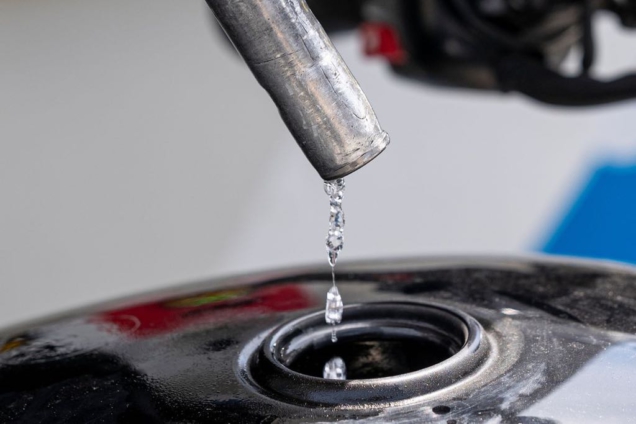Nigeria will likely spend 5.4 trillion naira ($3.7 billion) in 2024 - 50% more than in 2023 - to keep petrol prices fixed, while borrowing an extra 6.6 trillion naira to plug gaps in its budget, a draft document seen by Reuters showed on Thursday.
The "Accelerated Stabilisation and Advancement Plan" (ASAP), drafted by the finance ministry with private sector executives and some economists, aims to address challenges related to reforms aimed at boosting growth.
President Bola Tinubu last May axed a popular but costly subsidy on petrol in a landmark reform cheered by investors, to try to kick-start growth. But the move caused petrol prices to triple, increased transport cost and stoked inflation, angering motorists.
Tinubu has faced pressure from labour unions over the rising cost of living due to his reforms, but he has vowed not to roll them back.
Since July last year petrol prices have been fixed despite two currency devaluations. The country has relied on imports of petroleum products for years because state-owned refineries produce hardly any of them.
"At current rates, expenditure on fuel subsidy is projected to reach 5.4 trillion naira by the end of 2024. This compares unfavourably with 3.6 trillion naira in 2023 and 2.0 trillion naira in 2022," the ministry said in the draft document.
Presidential aide Bayo Onanuga said Tinubu had received the draft on Tuesday, adding that it is still only a proposal containing suggestions on how to improve the Nigerian economy.
But analysts say that if the president approves the policy he could issue executive orders to begin implementing its recommendations, which include plans for the power, oil and gas, agriculture and healthcare sectors with support for business.
Nigeria's economy has been stuck in low gear with growth of around 3%, far short of the 6% annual expansion Tinubu targeted when he came to power last year.
In its policy document, the ministry proposes that the government sell equity in its refineries by May 2026, increase the excise duty on beverages, and introduce a tax on single-use plastics and on sweetened beverages to raise funds.
It also states that the government will target oil production of around 2 million barrels per day by December, up from 1.4 million now, to boost cashflow and plug revenue gaps.
Latest Stories
-
ECOWAS Court orders compensation for violations against New Force’s Shalimar Abbiusi
4 mins -
Dreams FC denies allegations of attempting to sign Najeeb Yakubu
1 hour -
Election 2024: ‘Right to free and fair elections non-negotiable’ – Akufo-Addo
1 hour -
Kurt Okraku took out my passport from the U23 squad that travelled to Japan – Najeeb Yakubu alleges
1 hour -
Where hope fails: Ghana’s decaying home for the destitute
1 hour -
NDC Mining Committee for 2024 campaign refutes allegations of recruiting thugs for elections
2 hours -
Traction Control: A lifesaver with an off switch? Here’s why it exists
2 hours -
I don’t need anyman to woo me with money – Miss Malaika 2024 winner refutes pimping claims
2 hours -
”Kurt Okraku sabotaged my national team career because I refused to sign with Dreams FC” – Najeeb Yakubu
2 hours -
Businesses urged to leverage Generative AI for enhanced customer engagement
2 hours -
MultiChoice Ghana partners with Ghana Hotels Association to elevate guest entertainment
2 hours -
Bawumia’s music streaming app or Mahama’s pay-per-view TV channel?
2 hours -
Karpowership Ghana empowers 40 Takoradi Technical University students with scholarship
2 hours -
We expect significant reduction in prices of petroleum products in coming weeks – CEO AOMC
2 hours -
Betway Africa offers once-in-a-lifetime ‘Play-on-the-Pitch’ experience at Emirates Stadium
3 hours

